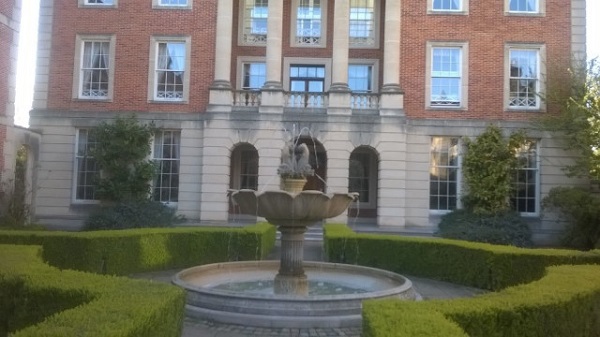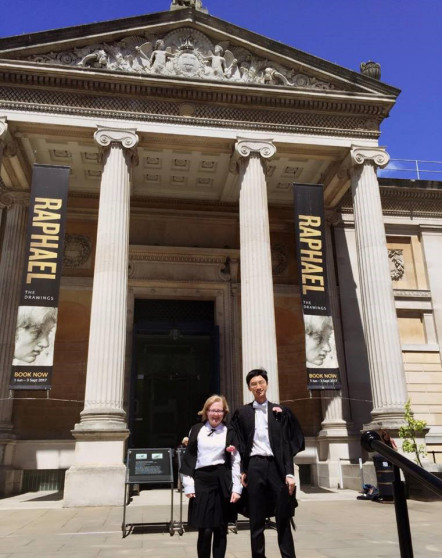
Hey there, I’m Chloé. I’m studying Archaeology here in Liverpool this year. It’s been wonderful to get to know the department and the society over the last couple of weeks, after being so nervous about coming to a new university. As a thank you, I’m sharing my experiences about the transition between universities, and how postgraduate study compares to undergraduate study so far.
The city and the campus
I spent three years studying Egyptology at the University of Oxford, and I was sad to leave. But it was time to live somewhere new, both for the experience and for the course which I’ve chosen to study. I have to admit, Liverpool is very different from Oxford. For one thing, Liverpool is a much bigger city. Oxford is very small and pretty, with a chocolate box décor.
Then there’s the campus. Liverpool University is all in one place, while Oxford is collegiate. That means that all of the colleges and departments are spread across the city, and it took twenty minutes to walk across the city centre from my college to the Ashmolean Museum and Sackler Library.
The departments are organised differently too. Here in Liverpool, Egyptology is linked with Archaeology and Classics. In Oxford, everything from Turkey and Egypt to Japan falls under the umbrella of Oriental Studies, which brings with it the need to put brackets after our degrees so that people know what we actually studied. The courses in the faculty are also much more philological and separated from one another. In Liverpool, things seem to be much more fluid between all of the HLC subjects.

Check out the websites for each department:
Moving from undergraduate to postgraduate study
As for transitioning to a postgraduate programme, that has been a bit of a shock to the system. It’s not so much that the workload has changed, as it is how everything is organised differently. There aren’t modules in Oxford. We learned stuff for three years, and then sat our exams. Here, a module only lasts for one semester. I think that there are benefits to both systems. At Oxford, the fact that material isn’t designated to particular modules allows students to gain both a broader and more detailed understanding of things that interest them. While the system at Liverpool enables students to gain a general understanding of a wider variety of topics, which is useful for getting a grounding in a completely new subject within the limited timeframe of one year.
Changing subjects
It’s also been interesting to change from Egyptology to Archaeology. Choosing a second language instead of archaeology and anthropology during my BA led me to decide to do a fourth year and gain some transferable archaeological skills to round everything off. One of the advantages of Liverpool is how much easier it is for me to join modules on topics that I’m interested in outside of my course. This semester I’m sitting in on History lectures on Christian history and Christianity’s relationship with Judaism and Islam, and taking an extra module in German. I’m hoping that next semester I’ll be able to continue auditing History modules, and start learning Arabic. The MA here is certainly going to be flexible and wide-reaching, and I look forward to beginning my new adventure.
Study at Liverpool
View our range of ACE postgraduate subjects at the University of Liverpool.